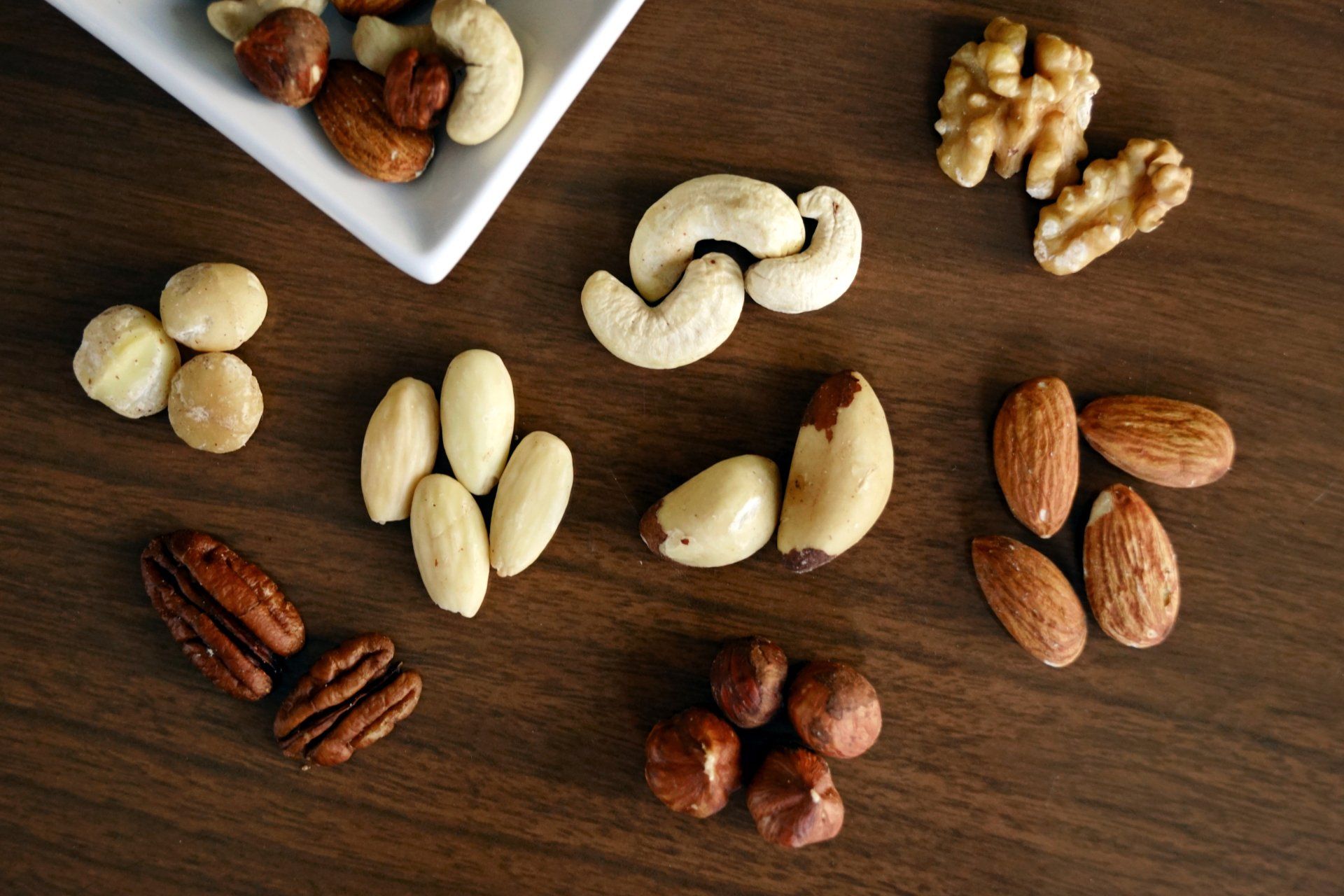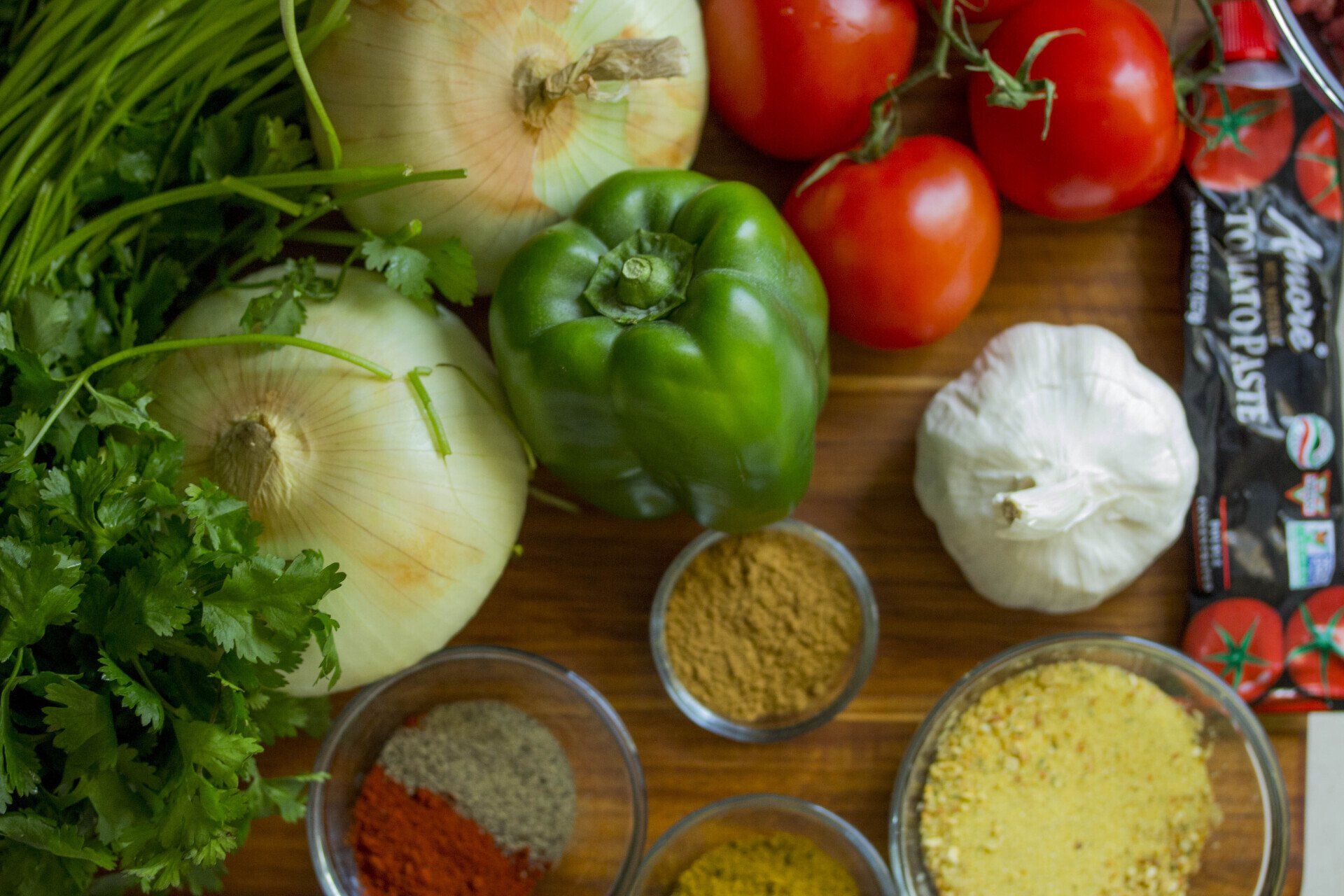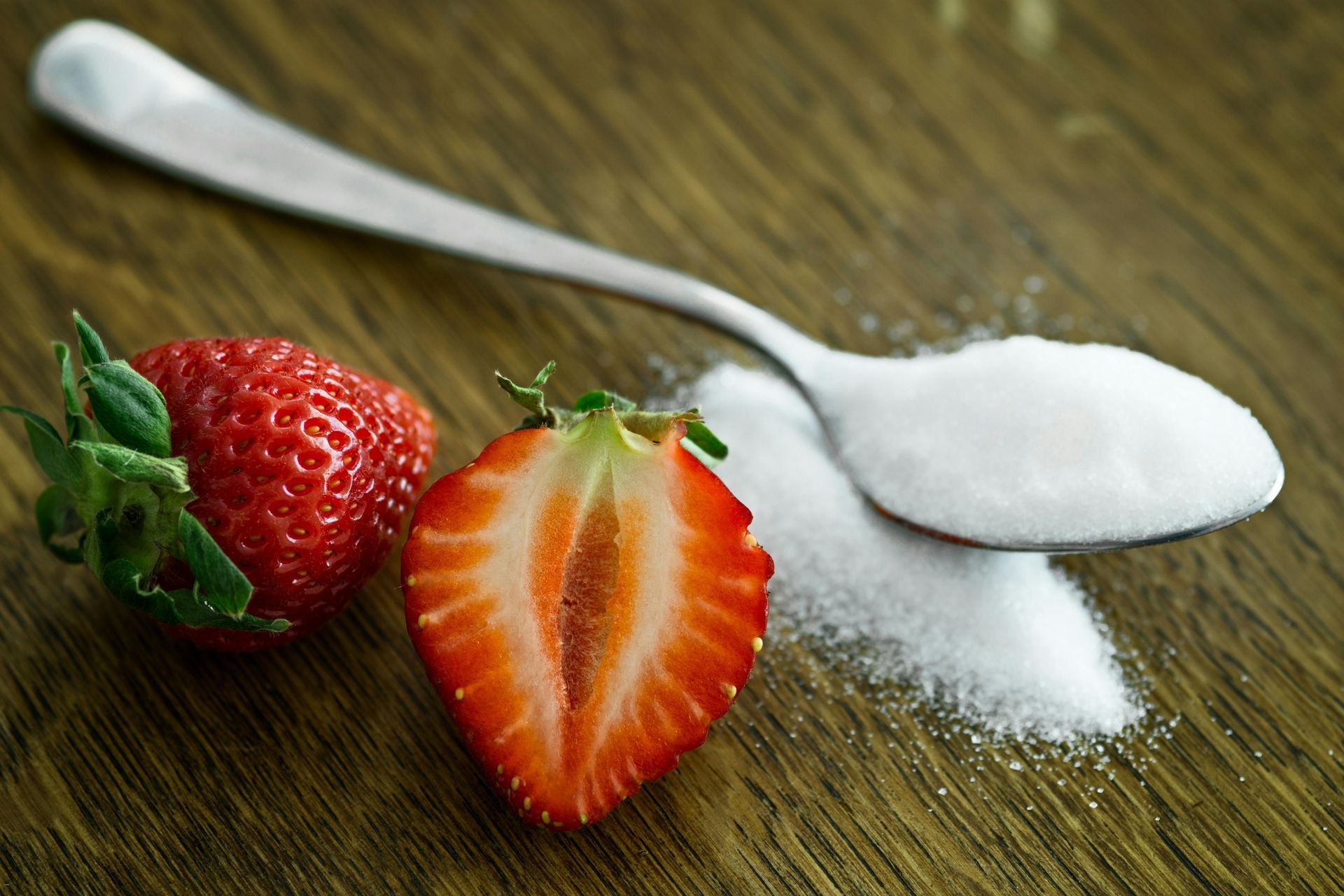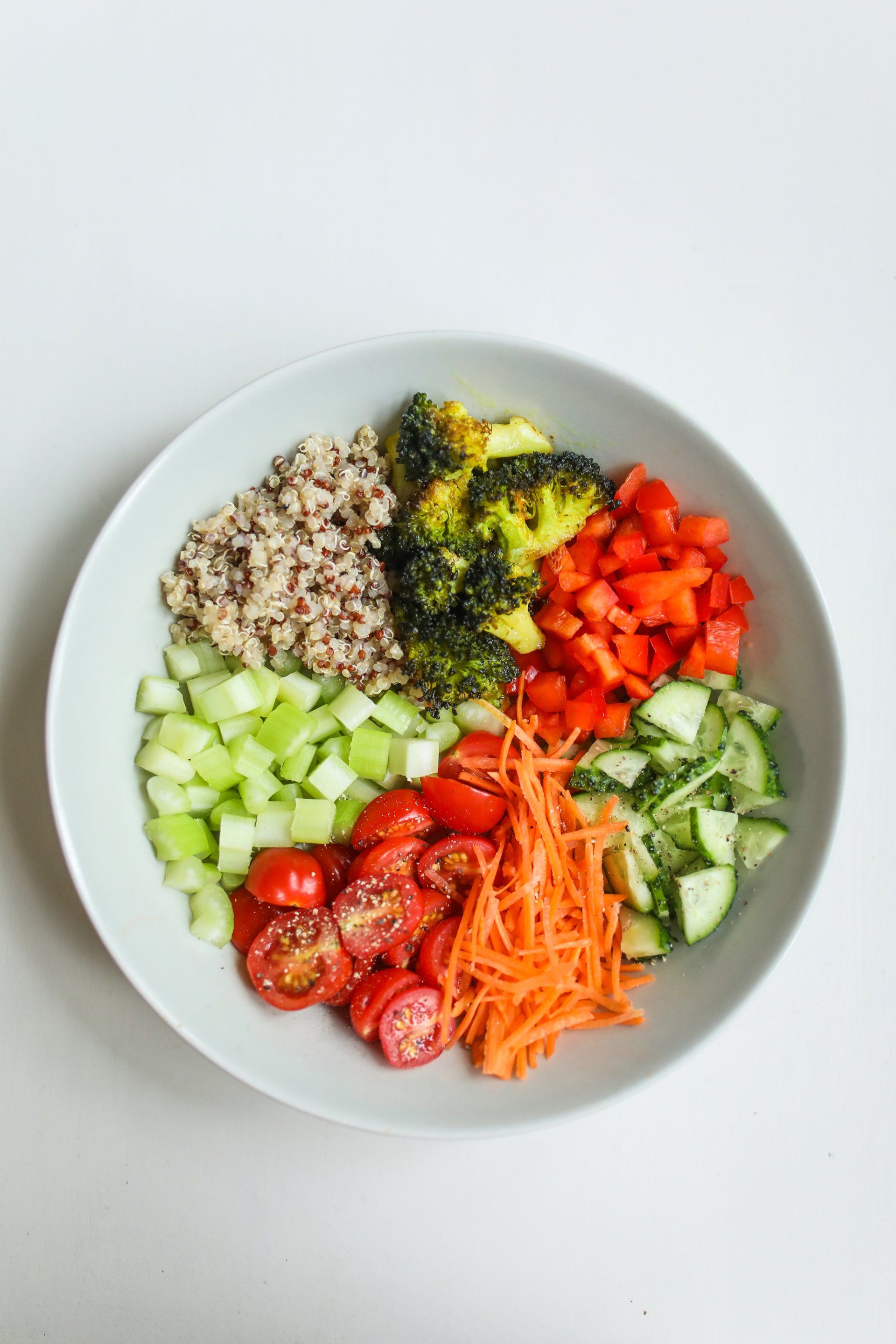Blog
We offer a wealth of educational content aimed at promoting sustainable health and wellness practices. Ensuring to provide evidence-based insight into fitness, nutrition, and overall well-being, empowering you to make informed decisions about your health!

The second principle we follow is: What you do to get healthy is what you need to do to stay healthy. This simply means that if you choose a paleo, keto, Mediterranean, vegan, intermittent fasting diet, you will have to stick to it long term in order to retain your progress. This is where most people screw up, they pick a restrictive diet, have some short term success, then return to their old way of eating and regain all that weight. Life is a lot longer and more complicated than a simple 12 week challenge. Even in a year, 12 weeks is only a quarter of the year, you have the next 40 weeks to undo all that hard work. This is why you see people do 12 week challenges every year without it ever seeming to stick. You need to come to terms with how you relate to food (see my last post), and how you best like to eat and exercise (more on that later). Look to establish simple habits and routines, rather than follow fixed rules. For example a common thing people do in order to lose weight is skip breakfast. If you however have spent most of your life eating breakfast, you will probably go back to that habit in the future, thereby adding calories back into your diet without realising. So sticking to a pattern of breakfast every day and changing its contents is much more sustainable.

Aim for mediocrity not perfection. This principle might seem counterintuitive at first glance, don't we all want to aim for perfection? But if you aim for what is the minimum rather than the maximum to still get results you create something much more sustainable for your long term health. For example, while training 5 times per week might be good, if the minimum needed to get stronger is just once every 7-10 days, you will be far less likely to fail, building 1 training into your routine. You can always add another session into your schedule at a later date, But if you start with 5 sessions then have to drop a couple due to being unsustainable you will feel like you are failing, despite still doing really well. A second part of this is to look for the next best option, not the perfect option. While a healthy home cooked lunch might be the best option you can have, if you forget to take lunch one morning, what is your next best choice, rather than completely messing up your food for the day. This means the best option available might be a steak pie from a bakery, because you know how many calories are in it, and it will stop you from using McDonald's as an all you can eat buffet. Now I am not saying you should be eating takeout regularly, but we all sleep in occasionally, or forget to buy groceries, so having a second best option for the times where you forget to plan is a great way to ensure you continue to have long term results. One last way this principle should be implemented in your life is the 90% rule when it comes to nutrition plans. I actively encourage people to take 1-2 meals per week off their nutrition plan. This doesn't mean an all you can eat binge at Pizza Hut, just eat something you like, that isn't in your plan. Because if you eat 3 meals per day, 21 per week, the 905 rule means you can have those 1-2 off and still make good progress. No one got fat from just one meal.

What Even Is Healthy? When we talk about being healthy, what does that actually mean? For some, it’s about having energy, avoiding sickness, or feeling good. For others, it’s about fitting into a certain clothing size or seeing a specific number on the scale. While all these factors matter, one of the most reliable ways to measure health is body fat percentage. 1. Why Focus on Body Fat Percentage? Body fat percentage is a more accurate and meaningful indicator of health than just tracking weight. Your weight can change from day to day based on how much water you drink, what you eat, or how active you’ve been. Body fat levels, on the other hand, change more slowly, giving a clearer picture of your health over time. Healthy body fat ranges can vary, but as a general guide: Men: 15–20% body fat is healthy. Women: 20–28% body fat is healthy. These ranges might surprise people. They’re higher than what many expect but lower than what some feel comfortable with. However, these levels provide a balance—enough fat to support your body’s needs while reducing risks associated with excess fat, like heart disease or diabetes. 2. What About Other Metrics? While body fat percentage is important, it’s just one part of the bigger picture. Health includes other elements, such as: Mental Health: Your ability to handle stress, stay positive, and enjoy life. Physical Fitness: This includes strength, endurance, flexibility, and mobility. Energy Levels: Consistently feeling energized is a key sign of good health. Body fat percentage stands out because it directly reflects your body composition and long-term health risks, but it’s not the only thing that matters. 3. Ways to Measure Body Fat Percentage Tracking body fat doesn’t have to be complicated. Here are three common methods: Tape Measure Calculator: Use an online calculator with basic measurements like your waist, neck, and hips (for women) to get an estimate of your body fat percentage. Fat Calipers: These tools pinch your skin to measure fat thickness. They’re more accurate but require practice to use correctly. Body Scans: Clinics or gyms offer scans that assess body fat. Some use basic bioelectrical impedance (less accurate), while others, like DEXA scans, measure fat distribution more precisely. It’s worth checking the type of scan before booking. 4. Why Body Fat Is Better Than Weight Tracking body fat gives a clearer and more consistent picture of your health compared to weight. Your weight can vary for many reasons—water retention, muscle gain, or even the time of day you weigh yourself. Body fat, however, shifts gradually, making it easier to track real progress. 4.1 The History of BMI and Its Flaws In the 1830s, a Belgian mathematician named Lambert Adolphe Jacques Quetelet created what we now call the Body Mass Index (BMI). Quetelet wasn’t a doctor—he was a statistician who wanted to study trends in large groups of people. His formula for comparing weight and height wasn’t meant to measure individual health. BMI gained popularity in the 1970s when American physiologist Ancel Keys promoted it as a quick way to classify obesity. But BMI has some big flaws. It doesn’t account for differences in muscle mass, bone density, or where fat is stored. For example, someone with a lot of muscle might be labeled “overweight” or “obese” by BMI, even though they’re healthy. BMI also doesn’t work as well for women or people of different ethnic backgrounds, since it was based on data from European men. While BMI is still widely used because it’s simple, it’s not very accurate for individuals. Body fat percentage is a much better choice for assessing health. 5. Healthy Changes Over Time Improving your body fat percentage takes time and consistent effort. The key is to make small, manageable changes. Extreme diets or quick fixes may give short-term results, but they’re hard to stick with and often lead to burnout. Health is a long-term commitment, so focus on sustainable habits instead. 6. Redefining Healthy It’s also important to redefine what “healthy” means for you. Being healthy doesn’t mean aiming for perfection. It’s about feeling good, staying active, and making choices that support your long-term well-being. Tracking body fat percentage can be a great tool, but it’s only one part of the picture. By taking a balanced approach and focusing on slow, steady progress, you can create a healthier and more sustainable lifestyle that works for you.




